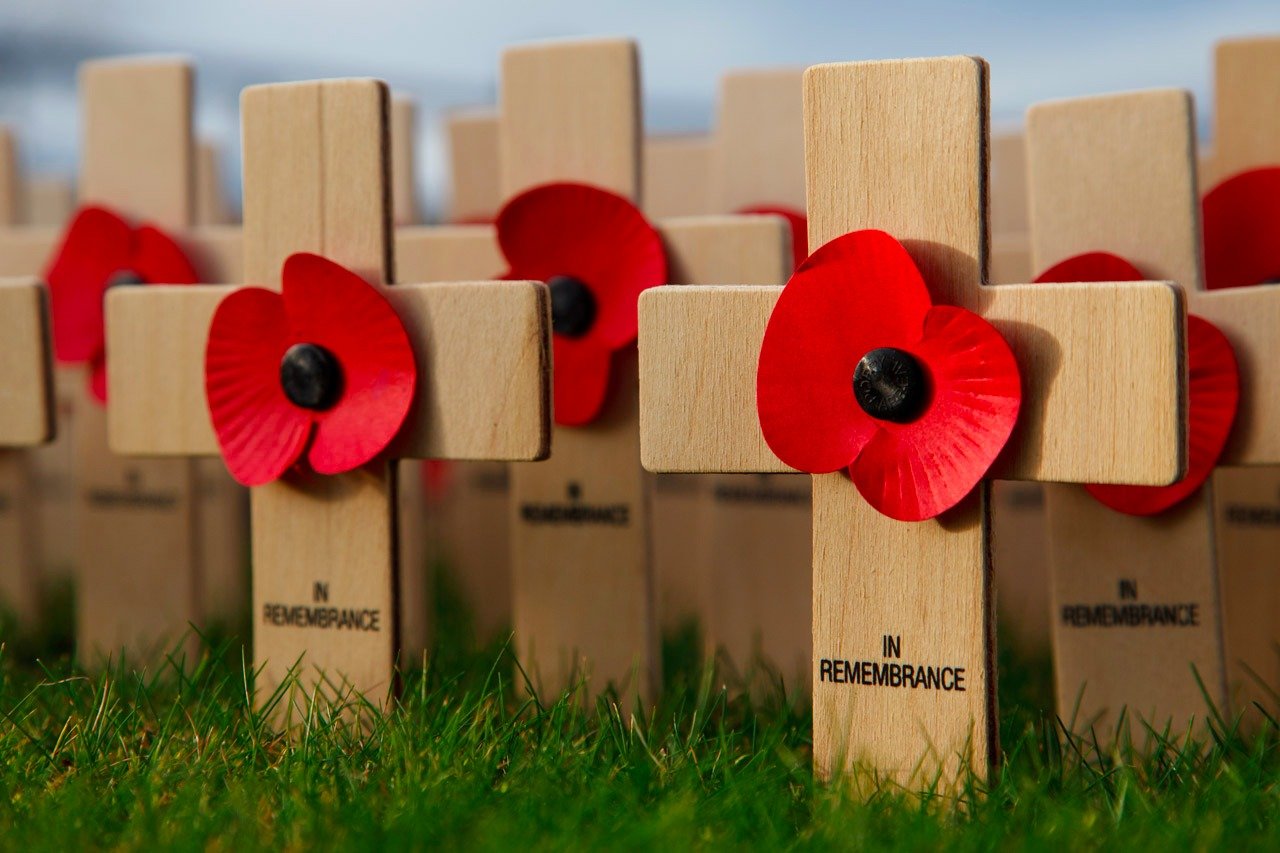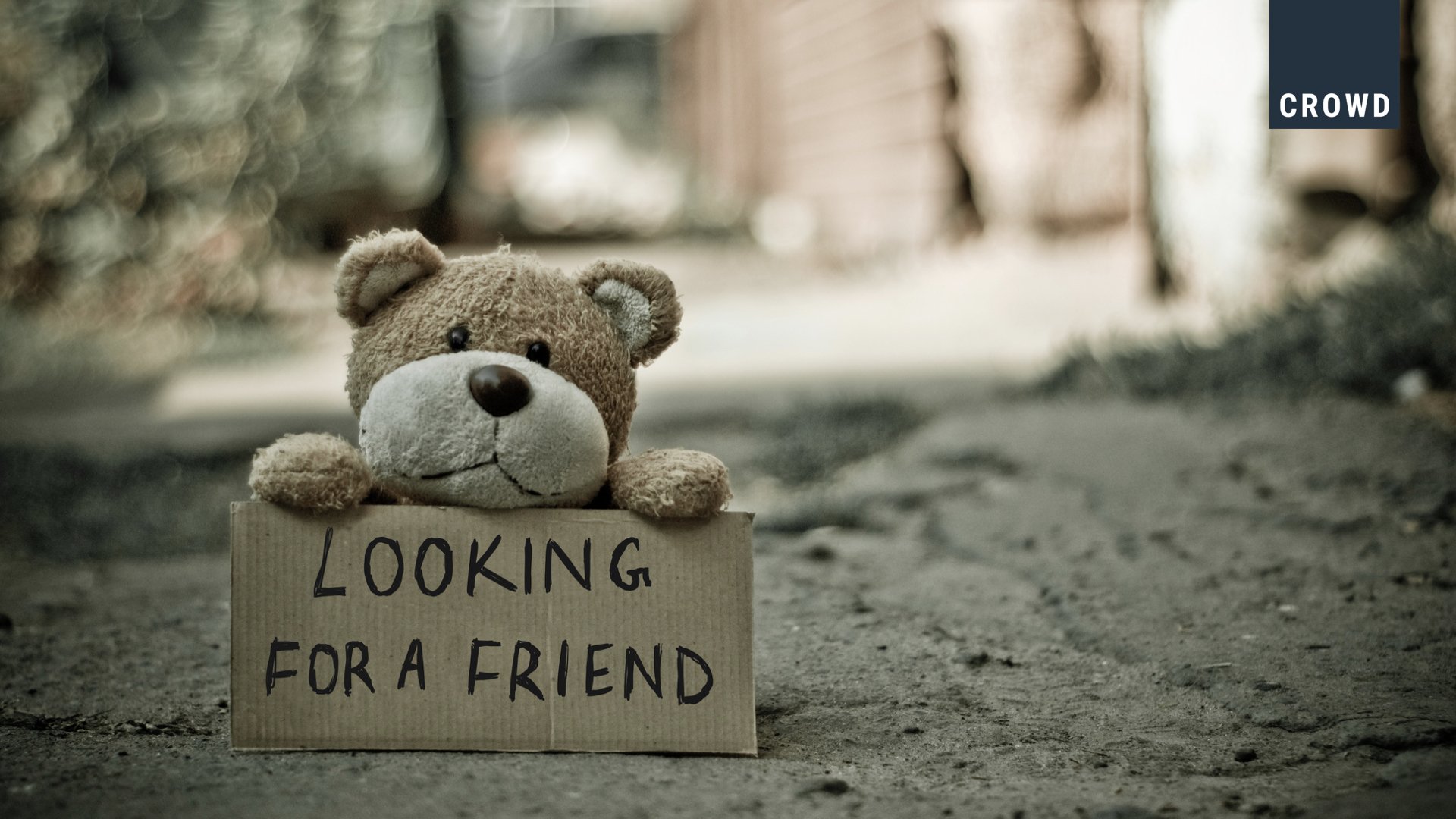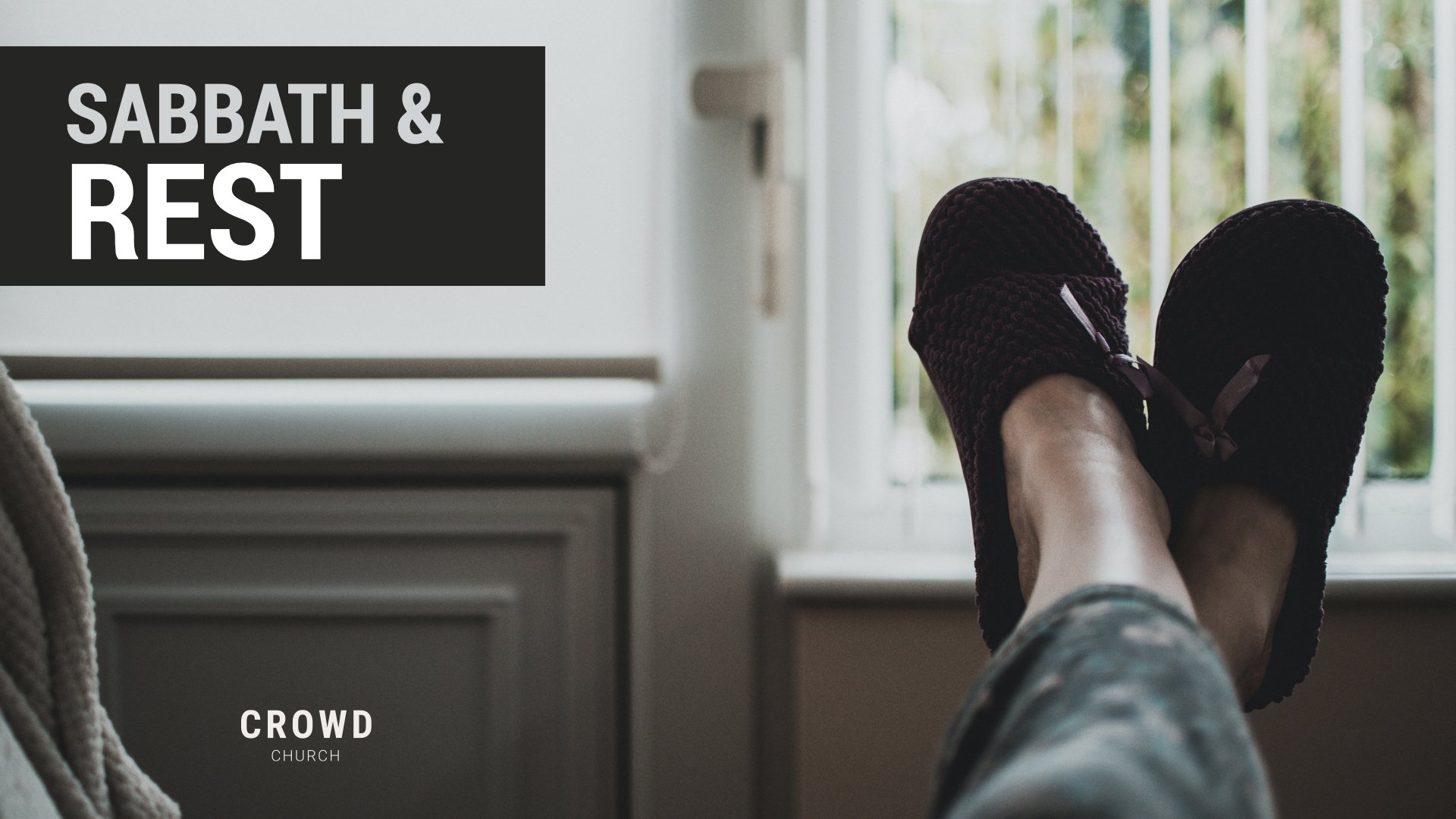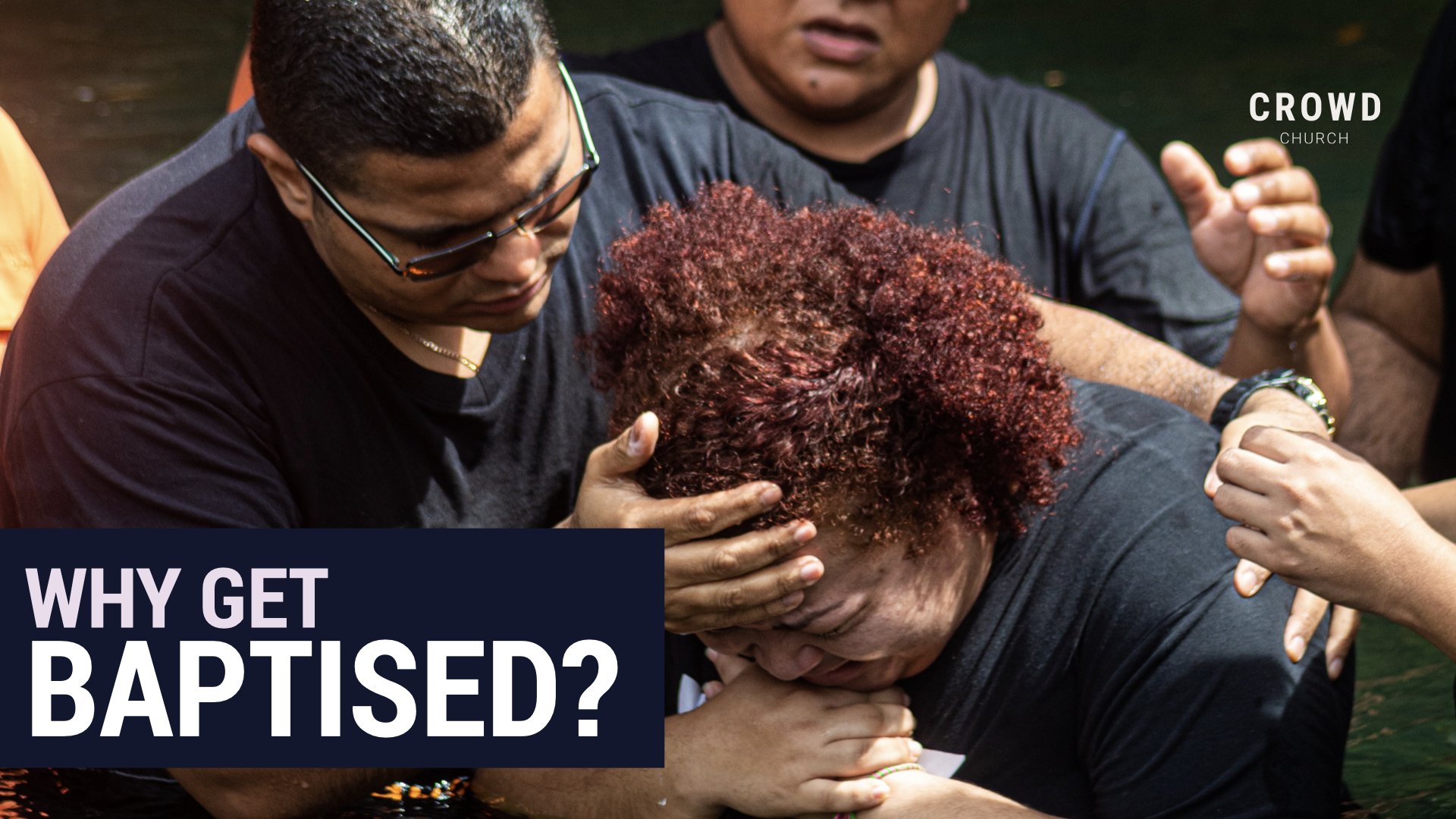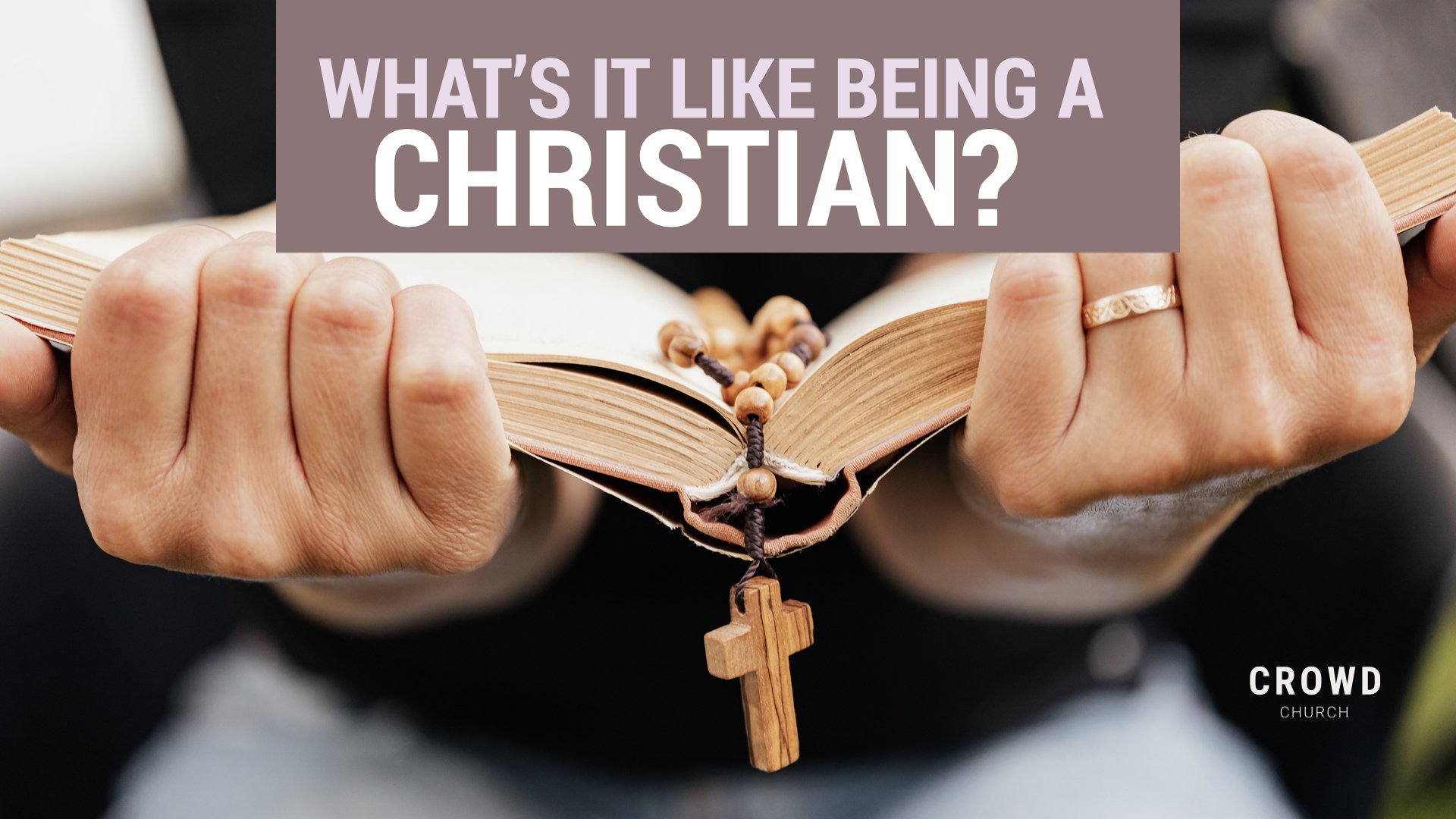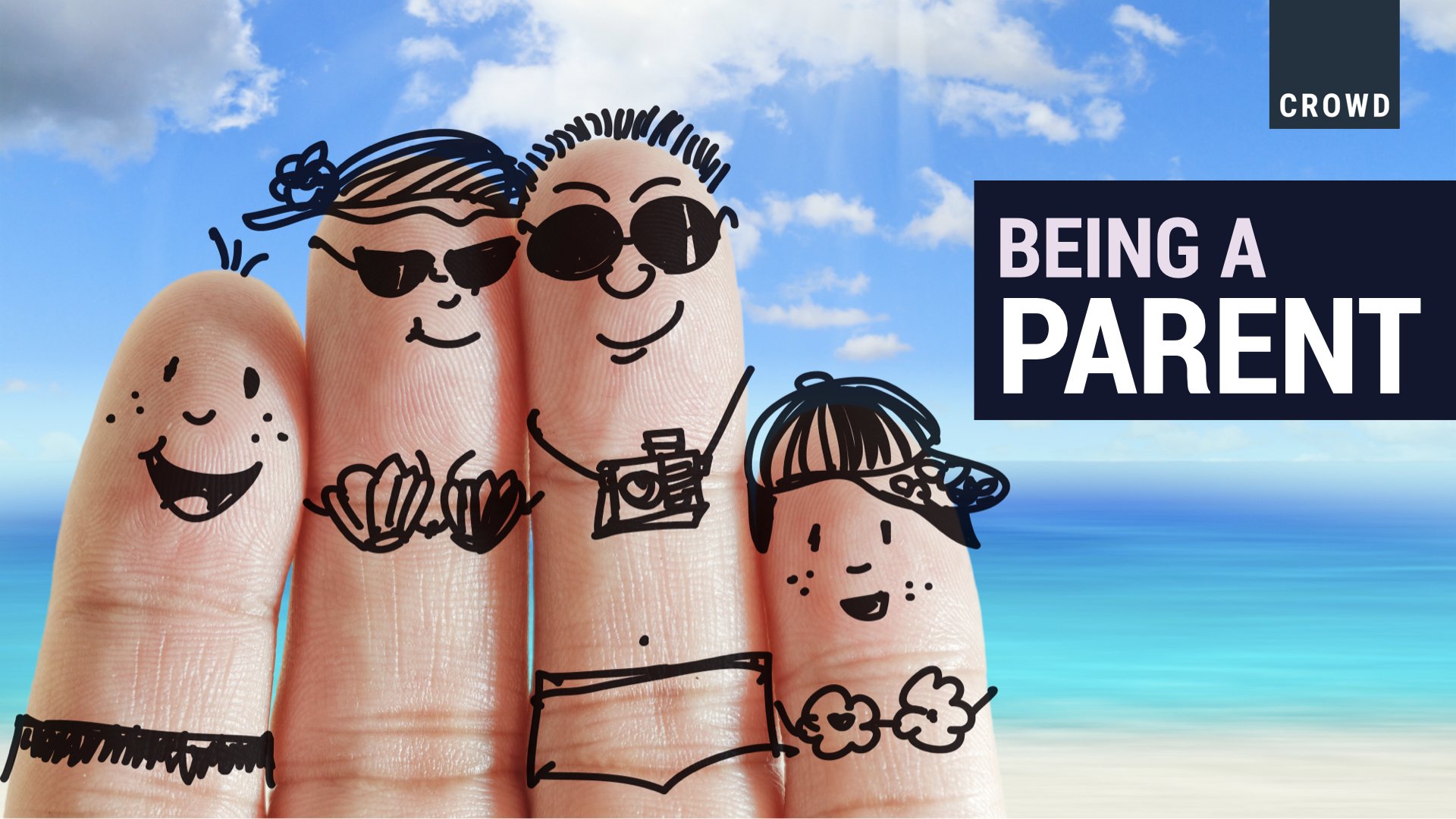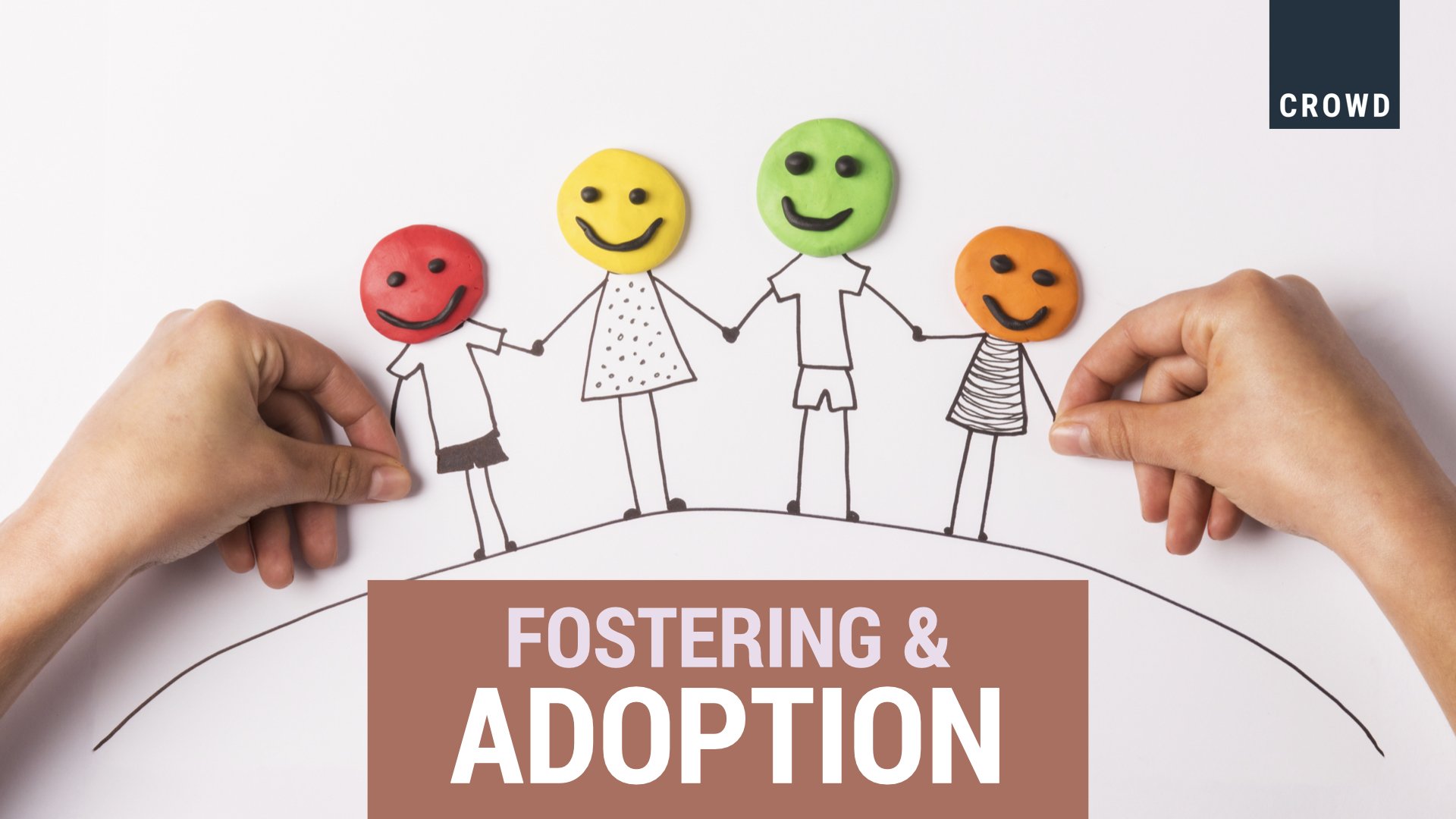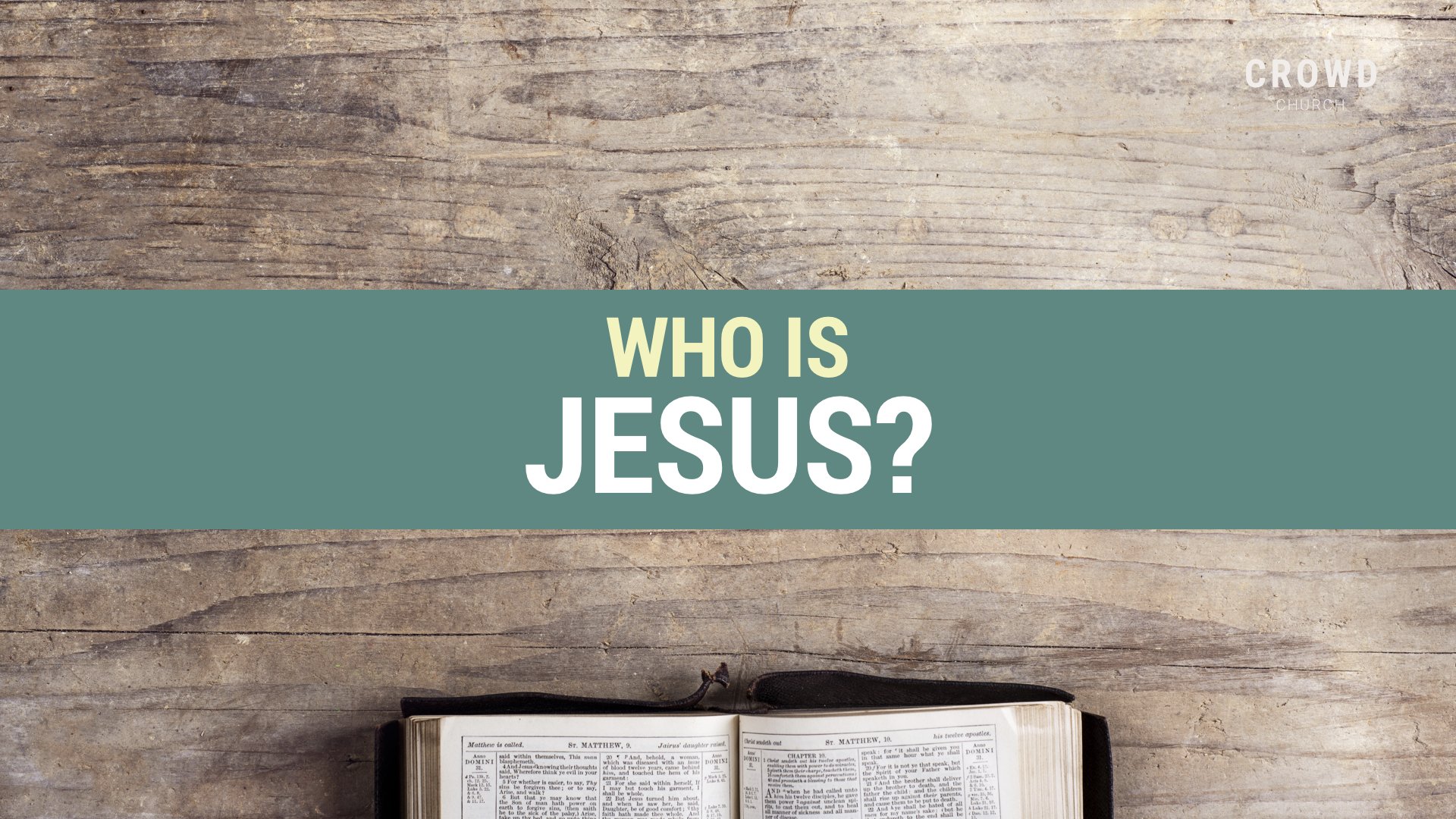What Does The Bible Say About Remembrance Sunday?
Podcast:
What does the Bible say about the Remembrance Sunday?
— Matt Edmundson
Perhaps a bigger question is to ask, what does the Bible say about days like Remembrance Sunday? For example, the days where we remember events and people such as those that have fallen and given their lives for a cause. We could take it even further, and ask, what does the Bible say about war? Is it just? Is it righteous? Why does God not intervene and stop war if He is a God of peace? There are so many questions, that we could easily ask.
Regardless of what I think about war itself, I can't argue with the fact that countless men and women throughout history, including my own family members, have paid incredibly high prices so that I can enjoy the freedoms that I currently have.
So should we intentionally assign days to remember such things? Well, it feels right to me to do so. But is there more than just this feeling? What does the Bible say about it?
Should we remember?
There's a really interesting story in one of the Gospels about a lady called Mary Magdalene. Now, Mary had a sister called Martha and she had a brother called Lazarus. They were all good friends with Jesus and the disciples. One day, they were having a meal at Lazarus' house in honour of Jesus (which seems like a pretty good reason to have a meal to me). During that meal, something rather interesting happened. Mary broke open an expensive bottle of perfume and anointed Jesus's feet with it. This would seem a bit of an odd thing to do today, right? You don't normally go to somebody's house to eat, and then when the host comes, rub perfume on their feet with your hair, not to mention that perfume was worth around £25,000 ($40,000)! But that's what Mary did with Jesus.
There is just one point that I want to draw out. It's to do with what Jesus said to Mary and her family and to all the disciples who were there when she'd done this. He says,
“Truly I tell you, wherever this gospel is preached throughout the world, what she has done will also be told, in memory of her.”
So it seems that there are times where acts done by ordinary people should be remembered. We should make time for them like we do today. It's not just Mary's anointing of Jesus's feet, we should remember either. There's a really interesting verse in John's gospel that is often quoted at times like this:
“Greater love has no one than this, that someone lay down his life for his friends.”
The greatest love … sacrifice
Those that give their lives for others is an act of love. And the greatest act of love is to lay down your life for somebody. That's quite an interesting statement that Jesus makes.
We might call it heroic when you lay down your life. We could call it a sacrifice. But ultimately, according to Jesus, it's an act of love. How do you know you love someone? You would give your life for them. If you're a parent, you will know that feeling well. Especially when your kids are young, and have so much of life to live.
What may surprise you about this verse, is its context. If we look at the context of what Jesus is talking about here we have to ask if Jesus is actually talking about the brave men and women that give up their lives? That's how we've often interpreted it but what Jesus is actually talking about, is Himself. He's talking about His own death.
The day that we breathe our last breath
There's a day coming, where we will breathe our last breath on this planet. Sorry to report it, but it is true. You can't escape it. Even if we don't think about it, we still can't escape it. I don't know when that day will be. You don't know when your last day will be. We can hypothesise all day long about it. We can look after our health and we can try to extend our lives. These are all good things. But really, we just don't know. We get to choose how we live. But sometimes we get to choose how we die. That is what Jesus is talking about.
According to the Bible, there is more than one type of death we face. Yes, we die physically, but the Bible talks a lot about spiritual death too. That spiritual death is what happens when we're cut off from God. Jesus talks about this a few chapters later. He says, imagine a branch that is cut off from a tree. There is still some life in that branch. Leaves can still grow on it. But it is ultimately cut off from the source of life. Eventually, it will die. There are two deaths for this branch. The moment it's cut off from the tree, and the day it withers and dies.
The two deaths we have to face
Humanity is a lot like that. There are two deaths that we have to face. There is a spiritual death, which is a separation from the tree of life, which is God Himself, Jesus, our source of life. But then there's also the physical death that we face. When Jesus talks about laying down his life, he dies both physically and spiritually.
Jesus is talking about laying down his life as a supreme act of love.
This is something that he does for his friends.
He says, you are my friends if you do what I command. That's quite an astounding statement. What happened through the death of Christ was that he died so that I wouldn't have to, so that you wouldn't have to. Not physically, but spiritually. In effect, he lifts up the branch and grafts it back into the tree of life. We are reconnected with the source of life. In so doing, Jesus calls us friends, and that's why Christians celebrate it.
Although it may seem odd, it is a remarkable thing that is life-changing. The consequence of Jesus dying was that I could find life again. The consequence of all those men and women who gave themselves in times of conflict is that I get to live in relative freedom and peace. There is a consequence to their love, to the gift of their life. That's amazing, both from the Christian narrative about Christ, but also from the people that fought for us. The Bible has a lot to say about remembering this kind of act.
The Memory Of The Righteous Is Blessed
In Proverbs, it says that the memory of the righteous is blessed. The memory of those that gave their lives is blessed. So those that live righteously, their memory is blessed. And it's good to remember that. In Deuteronomy, it says,
“Remember the days of old; consider the years of many generations; ask your father, and he will show you, your elders, and they will tell you.”
Remembering the good … and the bad
One of your roles as you get older, is to make sure that we tell the generations before what it was actually like. The good and the bad, the lessons that we have learned, the good things that we've discovered, and the dark days that we experienced. Solomon said this,
“But if a man lives many years And rejoices in them all, Yet let him remember the days of darkness...”
And we do this because the lessons from history are powerful. In fact, if you are a Christian, you'll find this idea of remembrance all over scripture and it's not like you've forgotten where your keys are, for example, and you're trying to desperately remember. No, remembrance is a deliberate act, it is something that you intentionally do. This is what's supposed to happen when you see a rainbow. The Bible tells us the rainbow shall be in the cloud, and I will look on it to remember the everlasting covenant between God and every living creature of all flesh that is on the earth. You see the rainbow, and you remember the covenant that you have with God. But it's not just when you see the rainbow. This act of remembrance happens every week. The Bible tells us to remember the Sabbath day, to keep it holy. Don't just think about it, we've got to get involved with it. So remembrance is a good thing.
Never in the field of human conflict was so much owed by so many to so few
— Sir Winston Church
We should remember the key events of life. That's why I love to celebrate birthdays, and my wedding anniversary, for example. It's why I love to get together with old friends and tell some of the stories from when we were younger. We feel something when we do that.
Now in this life, we may be called to lay down our life for others, like millions, over the years have done. Churchill said, never in the field of human conflict was so much owed by so many to so few. It's true, right? There are so many acts of heroism committed by people I have never met and never known. And today, I remember them, and I'm grateful. But also in this life, it's probably likely that you won't have to lay down your life if you live in places like I live.
As we discovered with Mary pouring perfume over Jesus's feet, there are opportunities for us to do something that is memorable, that does make a difference and that will be remembered. The Apostle Paul, wrote the following,
“I thank my God in all my remembrance of you.”
Paul would often remember those important to him. In so doing, he would pray and thank God for them. So I think that's what we should do. I think we should follow that pattern and do that.
CONVERSATION STREET
With: Matt Edmundson & Anna Kettle.
What is Conversation Street?
Conversation Street is part of our live stream, where the hosts (in this case, Matt & Anna) chat through Matt’s talk and answer questions that were sent in through the live stream. To watch the conversation now, click here.
Matt: So Anna, you wrote in the comments, that you hadn't thought about this topic much before. But the Bible has a lot to say about remembrance. What made you write that?
Anna: Obviously I've thought about Remembrance Sunday when it comes up every year. I hadn't really thought about in the context of what the Bible has to say about it and the importance of remembering. It just wasn't something that I'd considered before. Maybe that's partly because we don't live in war times, do we? I know wars happen today still, but we're not like living in one are we?
Matt: There seems to be a lot in the scriptures about feasts. God commands, you remember, and you eat. It seems that whenever God tells you to do something, there's usually food involved, which is a winner, where I'm concerned. I'm aware that not next weekend, but the weekend after is Thanksgiving in the States, where you have food, and you're thankful for things, and I think things like that are just brilliant, and I think God's for it.
Your Grandfather was in the RAF during the Second World War, is that right?
Anna: He was, yeah, my mom's father. He helped build aeroplanes and some of those fighter planes during the Second World War. That was his job. It was also my father-in-law, Morris, who's no longer with us, but was in the Navy during the Second World War and was stationed on ships for five years. He was actually a medic. He wasn't military, but obviously, he served in terms of looking after those military officers that were injured. I think he saw some fairly horrific things. It's incredible isn't it how so many of us have people In our own families who've all been involved in different ways? It's one of the things that I always think about with our little boy Ben. That next generation won't have a direct connection anymore. It's another generation removed, isn't it? I think that's why remembering is so important. The more the generations move on, the further in history it is and the less the personal connection. You can talk to people our age and there's still a direct connection with family members. But that won't continue much longer. I still remember going and talking to old people in my primary school about what their experiences were of wartime. Kids today won't be able to do that, to hear first-hand accounts, because just as the generations move on, there's less and less of those people still around. Neither of those family members are still around for us, so, case in point.
Matt: Yeah, I'm the same as you. I can remember having conversations with my grandparents and Sharon's grandparents as well. They had amazing stories from the war. Sharon's grandfather fought in Dunkirk and my great grandfather lost his life in World War One. Obviously, I didn't know him, but like you say, I feel like we're the last generation that had a connection to those that did fight in the great wars.
One thing that I've noticed is the younger generations tend not to wear poppies. I appreciate I'm stereotyping a little bit here, but typically, if people aren't wearing puppies, they tend to be younger. I was really challenged by that scripture where it says, parents and your elders, you've got to tell the generations below what happened. So, I heard the stories from my grandparents, and I have to tell my kids those stories so they remember because they are sort of removed from it in some respects. We have to learn those lessons, don't we?
Is it sad that people aren't wearing poppies as much in the younger generations? I don't know, I just feel like that there is a disconnect and I feel that that's a bit sad, maybe?
Anna: Yeah, I think it is. I understand not everybody likes the idea of war. I mean, none of us like the idea of war, do we? But I think that's to oversimplify what the poppy is, it's not a celebration of war. It's a celebration of a sacrifice for our freedom. So I think it is a shame that not everyone respects that as much today. I suppose you still get taught about it in school and in history lessons so there is still that passing on. But I think there's maybe less of a direct personal connection. My little boy last week in primary school was doing a puppy appeal and he came home with a poppy. I think they still do it, but there's definitely less of a connection.
Matt: There have been some other big wars in our lifetime actually, such as the Gulf War. When I was growing up that was a really big thing. More recently, of course, there's been Afghanistan.
I've had family fight in the Afghan war and the Iraq War and one of the questions that comes through all the time is, if God is a God of peace, why doesn't he just intervene and stop war? Why does God not just come down and go, right that's it guys, there's just no more war?
What do you think Anna? Have you got any thoughts on this? Sorry to throw you in at the deep end?
Anna: It's a really hard question, isn't it? I mean, it's one of the first questions I'll be asking God when I get up to heaven, wherever heaven is. I don't think there's an easy answer to that. I think part of it is about free will. God gives us choice. He gives us a choice to follow Him and do what's right. Or not. And unfortunately, as you say, lots of leaders in our world, in particular, choose to do what's not right or selfish or power-grabbing. Why doesn't God intervene? I think if you intervene on one thing, you intervene on everything, don't you? Where do you draw the line? Equally, from my human pain and suffering perspective, why doesn't he intervene? I don't know. I'm not God, I'm not sure it's something we could ever fully answer as human beings or fully understand because all we feel is our pain and our loss, our grief.
Matt: Yeah, I'm with you. I think it's quite a complex question to answer. There are answers which we have historically given. Jesus, when he talks about his death and resurrection, actually said, there are going to be wars, he predicted this sort of acceleration of wars. And it comes down to in effect, the evilness of man. I don't know if I would attribute it to God not intervening rather than more like a steward. We talked the other week about what does God say about the environment? Ellie did a great job talking about stewardship and how we've been given stewardship, which was great, and if you've not heard it, do check it out. In the same way that we're stewarding the planet, we're supposed to steward each other and supposed to steward people. I think if you mix together the innate selfishness of man with a bit of power then crazy things can happen.
With all due respect, I think the cop-out is to say, it's God's fault because he's not done anything. The difficult thing to do is to go, actually, I can be quite selfish, I might not have killed people, but I can demonstrate selfishness. And if that's in me, then it can be in other people and evil is prevalent and real in the world. So I can't just lay this at God's feet. I have to take some responsibility here and search out some answers.
So, Remembrance Sunday, and doing that in church. Anna, for you, you're remembering your father in law? Do you use Remembrance Sunday as a time to remember anyone else? Like maybe someone that wasn't affected by war? Or is it just a time to remember lost loved ones, for example.
Anna: It's an interesting thing actually, I hadn't really thought about it from that angle. So I would just normally think about people that had been lost through war or that kind of sacrifice. But yeah, it's an interesting point that yeah, it may be that some people use it as an opportunity to just reflect on anyone who they've lost. I never really thought about that angle, actually. But it'll be interesting to know if anyone else does who's watching.
Matt: Nicola wrote in the comments, remembering helps us to be able to do the same for others. And I think that's really, that's actually quite an interesting point that remembering the sacrifice of others, and that we're here because of choices other people made on our behalf we've never met, I think is very humbling. Very, very humbling. I was listening to Ant Middleton last night. Zach, and I went to watch Ant Middleton, who's a TV personality here in the UK. I thought what he said was, was fascinating. It was basic, surface level psychology which I really enjoyed. And it was just interesting some of the principles that he came up with. I think actually, a chunk of those do come from scripture, which you can see. One of the things he talked about last night was entitlement, and how people these days are walking around with entitlement. He said that you're entitled to absolutely nothing (or words to that affect). I think that's a really interesting idea because when I remember the sacrifice of others, I'm humbled but there is this entitlement that I'm some kind of God's gift to the earth.
Anna: It's a challenge, isn't it? You think about people who've given everything for others and then the kind of flipside of that, what are you going to do for others? Those who have been given much, then should also give much. That isn't always our response to being given much, but it should be, and particularly if those of us who are Christians, that's the idea of faith isn't it? Actually, Jesus has given you everything and what are you going to do with your life now that's going to be of value and really count and make the world better? It's something that I don't think people necessarily will feel as much anymore. Are we too individualist a society now where we think about ourselves? Some of our sense of society and community as a whole seems to be breaking down. I think it's so important that we all see ourselves as part of a bigger society. We don't all live as islands do we? We're all interconnected, as we've seen with COVID and other things in the last couple years.
Matt: Mrs. Kettle has written in here, I think it's important that Remembrance Day is dedicated to remembering the many, mostly young men and women who have given the ultimate sacrifice in the various wars, that have ensured our freedom. Given what you were saying earlier, it would be a shame for it to be clouded by other personal losses. Maybe we should make more of All Saints Day. That's very interesting. Very good comment there. You're going to have an interesting conversation with your mother-in-law about that. No doubt.
So I thought it was a good comment that actually, today is Remembrance Sunday. It is to remember those who have fallen, who have given their lives as a sacrifice. You know, lots of young men and women who were sent terrified to the frontlines and have been, not just in years gone by, but are still presently being sent over. Our thoughts, our prayers, and our thanks and gratitude are with you today. And if you know someone who's in the military, why not just send them a text, or to say thanks.


